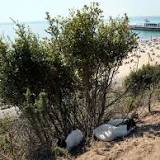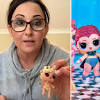Ellie Simmonds: A World Without Dwarfism review – are drugs really the answer?

The Paralympian investigates new drugs intended to treat achondroplasia, which some view as the future – and others see as an ‘existential threat’

When I was in my 20s I went out for quite a while with a man who had a disability that affected his ability to walk, and who had a son severely disabled by cerebral palsy – he communicated non-verbally and would never be able to live independently. To go out with them was to have your eyes opened to just how much of disability is socially constructed. Which is the fancy way of saying that there wouldn’t be half so many problems for loads of disabled people if shops would just bother putting ramps and lifts in, and if non-disabled people would stop staring in either disgust or fascination at anyone who deviates even slightly from the physical norm. And a special shout-out, even 20-odd years on, to the lady who advised us from a position of unassailable entitlement and fury to “Stop breeding”.
On the other hand, we – as a group, and my boyfriend and his son as individuals – were, for the bulk of the time, met with great kindness, generosity and practical help from the non-staring demographic. But it is inescapably the case that to live with any condition that marks you out from the herd is to live, to some degree, in a different world from most.
Ellie Simmonds: A World Without Dwarfism (BBC One) is presented by the multiple gold medal-winning Paralympian swimmer, who has achondroplasia – a rare genetic condition which causes a type of dwarfism. The programme poses the question of how much we should expect (or wait for) society to change and how much, if medical science offers the chance, people with disabilities (or states classed as such in the public mind) should change themselves.
Vosoritide is a new drug, designed to mitigate the symptoms of achondroplasia. There are other drugs too, aimed at other forms of dwarfism, but vosoritide is in the final stages of its clinical trials and may be available on the NHS from 2023. If given as a daily injection to growing children it can give them straighter spines and legs (bowing is a common feature of achondroplasic dwarfism), help avoid various surgeries that are commonly needed, lessen pains that are commonly experienced by stressed joints and – this seems to be where most of the focus is, for parents, patients, doctors and campaigners both for and against its introduction – make them taller.
So what do you do? Is this, as the doctor leading the UK trials seems to believe, a wholly unproblematic field of endeavour for medicine, seeking to eradicate the genuine physical problems associated with dwarfism, but not dwarfism itself? Or is it, as put by an activist in the US – where the drug is already approved – an existential threat to dwarfism (and by extension, all other forms of difference)? Is it giving in to prejudice, or empowering individuals to live their best lives in an enduringly imperfect world?
Simmonds starts from a pretty much wholly anti-drug perspective but, as she gathers accounts from parents of children on the drug, the children themselves and people who have undergone other procedures, she is open and honest about how fortunate she has been in her upbringing and how much this has coloured her thinking. She was born to average-sized parents who immediately accepted her condition and ensured she was from the beginning in contact with those who shared it. Her sporting talent was discovered at a very young age and enabled her to grow up with the message, overwhelming any outside negativity, that her body was something special and could – as indeed it did – lead her to greatness.
It is perhaps not until she interviews her teammate Will Perry, who also has achondroplasia, that she realises her life experience is not representative even within the narrow confines of Paralympian-hood. Perry speaks with passion and great articulacy on the rage and misery of the prejudice he has encountered – he is “50/50”, he says, on whether he would swap his life for a “normal” one – and is much less sure than Simmonds that he would not put his putative children on the drug. Simmonds is not a natural interviewer (she is particularly reluctant to push vosoritude-embracing parents on the wider implications of their decisions and she doesn’t take on any of the people at a Silicon Valley convention for research into dwarfism – “All raising funds to cure me”) but this frank discussion between friends left you wanting more of it.
There was little examination of other cultural issues that can be at play – no consideration of how Perry’s experience and outlook differ because he is a man and men are not “supposed” to be short, for example – or comparisons with the effect medical interventions have had on other conditions (amniocentesis tests and Down’s syndrome birthrates, perhaps). But it raised questions and awareness – and hopefully there are more of both to come.
- Television
- TV review
- Ellie Simmonds
- Sport TV
- Documentary
- Factual TV
- BBC One
- Disability
- reviews


 United Kingdom
United Kingdom Argentina
Argentina  Australia
Australia  Austria
Austria  Brazil
Brazil  Canada
Canada  Germany
Germany  Ireland
Ireland  Italy
Italy  Malaysia
Malaysia  Mexico
Mexico  New Zealand
New Zealand  Poland
Poland  South Africa
South Africa  United States
United States 




